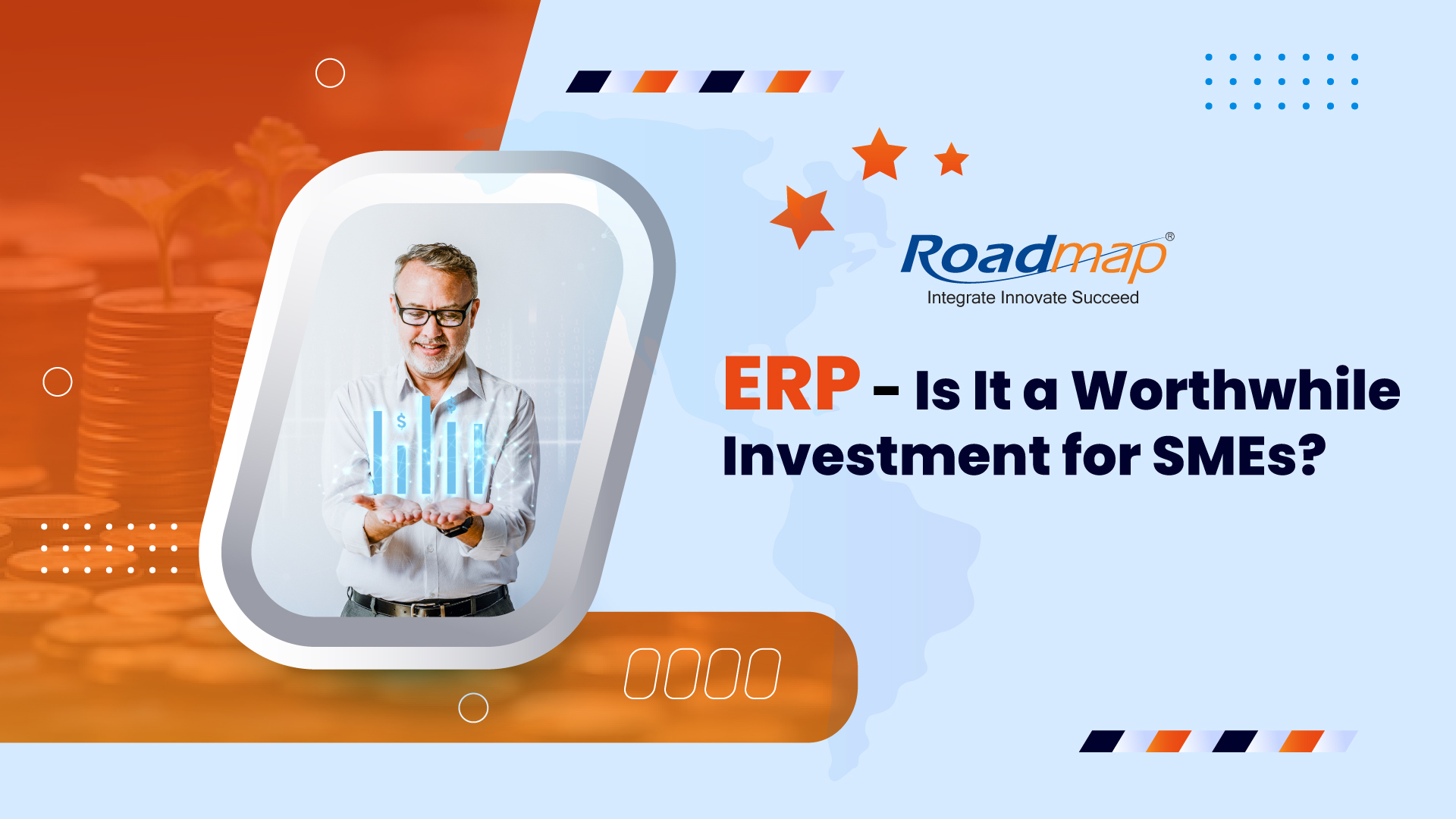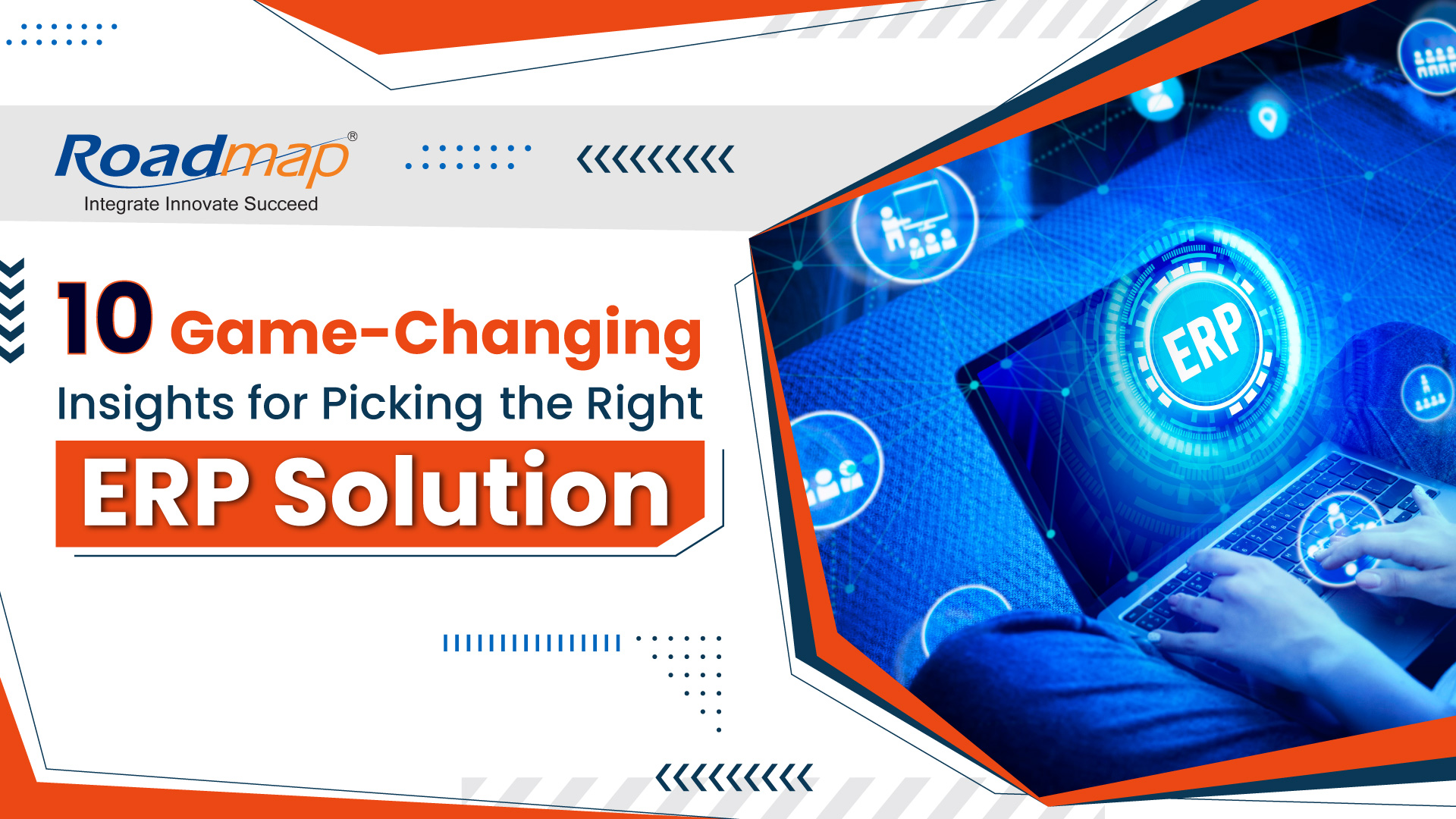
- Roadmap
- 22-Nov-2024 04:02:02
ERP - Is It a Worthwhile Investment for SMEs?
In today’s fast-paced, competitive business landscape, small and medium-sized enterprises (SMEs) are constantly looking for ways to optimize operations and streamline processes.
Enterprise Resource Planning (ERP) systems—once considered a luxury for large corporations—have now become a necessity for SMEs for sustainable growth.
However, as costs, time, and resources are always concerns for smaller businesses, there a question arises: Is ERP a worthwhile investment for SMEs?
The Promise of ERP for SMEs
ERP systems deliver a powerful, unified platform for managing and optimizing vital business functions such as Finance, Inventory, HR, Sales, and Customer Service.
For small and medium-sized enterprises (SMEs) that often juggle various standalone tools and manual processes, adopting an ERP system can prove revolutionary.
Here’s why you should consider it:
1. Enhanced Efficiency and Reduced Redundancy
- ERPs centralize data from all departments into a single system, minimizing data duplication and ensuring that everyone is working with the same information. This reduces errors and improves communication across departments.
- Automation of routine tasks—like Payroll, Invoicing, and Order Processing—allows SMEs to save time and focus on more strategic activities that drive growth.
2. Better Decision-Making with Real-Time Insights
- ERP systems provide real-time access to critical data, allowing SMEs to make faster, data-driven decisions. Imagine knowing, at any moment, your stock levels, cash flow status, or which products are driving the most revenue—without having to manually gather and analyze information.
- Access to this data helps SMEs pivot quickly, especially in fast-changing markets, making them more resilient and responsive to new opportunities or potential risks.
3. Improved Customer Experience
- A well-implemented ERP enables SMEs to track customer orders, inquiries, and complaints seamlessly. With customer information centralized, customer service representatives can respond faster and with more accuracy, boosting customer satisfaction and loyalty.
- Improved inventory management also means customers face fewer stockouts and delays, enhancing their overall experience with the business.
4. Scalability for Future Growth
For SMEs with growth ambitions, ERP provides a scalable foundation that can support more extensive operations, whether that means increasing sales, expanding product lines, or entering new markets. Unlike piecemeal software solutions, ERP systems grow with the business, making it easier to onboard new team members and departments into a unified structure.
Challenges SMEs Face with ERP Implementation
While the benefits are enticing, SMEs face unique challenges when considering ERP systems. Here are a few critical ones to weigh carefully:
1. High Initial Costs
- Although ERP systems have become more affordable, the initial investment—software licenses, hardware, and consulting fees—can still be significant for SMEs. Many ERPs also come with recurring maintenance and subscription costs, which can add up over time.
- To address this, cloud-based ERP options offer more flexible pricing models, where businesses can choose a pay-as-you-go model instead of making a large upfront investment
2. Implementation Time and Disruption
- ERP implementation is often a lengthy process that can disrupt daily operations. Small businesses, which usually have lean teams, may find it challenging to dedicate the time and resources required for a successful rollout.
- However, planning and choosing a phased approach can help minimize disruption. Starting with essential modules and gradually adding more features helps SMEs transition more smoothly.
3. Employee Resistance and Training
- Shifting from traditional methods to a new ERP system can be intimidating for employees. Resistance to change is a common issue, as team members may be comfortable with their existing processes
- Investing in proper training and involving employees in the decision-making process can foster a smoother transition. When employees understand the system’s benefits and feel prepared to use it, the adoption process becomes much easier.
Why ERP Is a Deserving Investment for SMEs
Despite challenges, ERP systems provide long-term benefits that often surpass initial obstacles. Here’s why investing in ERP can be valuable for many small and medium-sized enterprises (SMEs):
1. Long-Term Cost Savings: By automating processes and reducing manual tasks, ERP systems enhance operational efficiency. This leads to cost savings that accumulate over time. Many SMEs experience a significant return on investment (ROI) in the years following the implementation of ERP systems.
2. Competitive Edge: In a crowded market, businesses that make quick, data-driven decisions tend to outperform those that rely on guesswork or slower processes. ERP enables SMEs to remain competitive by improving their agility and responsiveness.
3. Compliance and Data Security: ERP systems often include built-in security features and compliance tools, helping SMEs adhere to industry regulations and safeguard sensitive information. This can be particularly crucial for businesses operating in heavily regulated markets.
4. Future-Readiness: ERP systems enable SMEs to adapt and scale efficiently as they grow, allowing them to keep pace with the demands of expansion without overhauling their software infrastructure.
Conclusion: While ERP systems demand a notable investment, both financially and operationally, the potential for increased efficiency, scalability, and customer satisfaction can make it a valuable asset for SMEs. The key to success lies in selecting the right ERP provider, planning a phased implementation, and fostering an environment where employees are supported and trained.
For SMEs evaluating an ERP investment, the decision should center on both immediate needs and long-term goals. In many cases, the benefits of streamlined operations and enhanced growth potential make ERP a worthwhile investment that empowers SMEs to compete with larger players, innovate faster, and lay a robust foundation for future success.




